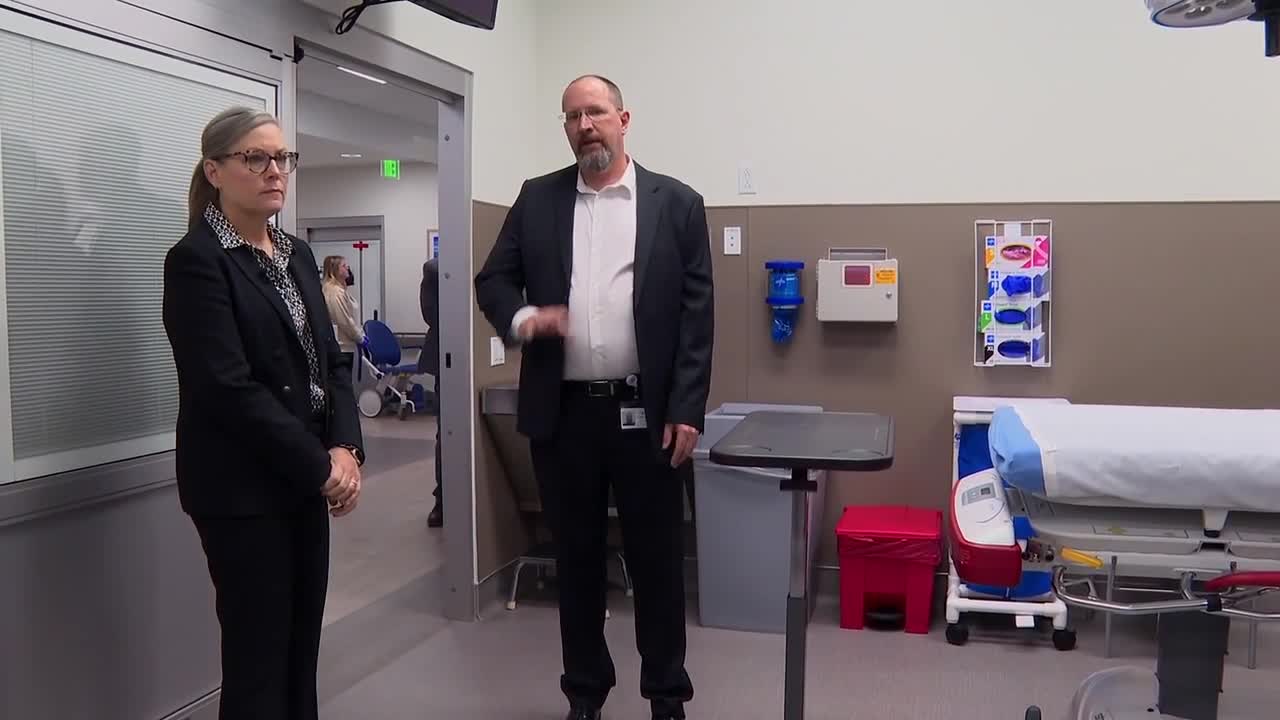SPRINGERVILLE — Arizona has applied for federal funding under President Donald Trump’s big tax law for rural hospitals, but Governor Katie Hobbs says the $1 billion won’t be enough to mitigate the law’s cuts to Medicaid.
Hobbs visited Springerville on Friday morning to talk with hospital administrators at White Mountain Regional Medical Center and Summit Healthcare, a hospital in Show Low. She took a tour of WMRMC, a 21-bed critical access hospital, and held a roundtable discussion on the challenges rural hospitals face.
“I worry about how we're going to make sure people have access to health care across the state,” she said.
The One Big Beautiful Bill Act, which was signed into law in July, adds new work requirements to Medicaid in 2026, requires states to check people’s eligibility every six months instead of annually, increases paperwork requirements and hikes copays for recipients who make more than the federal poverty level.
Republicans say the measures are needed to reduce Medicaid fraud and abuse.
The law also appropriates $50 billion in federal funding for rural health care. Arizona submitted its application for $1 billion from the Rural Health Transformation Program on Wednesday.
“It's helping us address existing gaps in health care in rural communities, but those gaps are going to be exacerbated when these Medicaid cuts hit, and this funding is not going to make up for those gaps,” Hobbs said.
Hospital administrators say the cuts to Medicaid and the premium hikes for Affordable Care Act health insurance plans could add up to more rural patients without insurance.
“You know, when you don't have insurance, you wait until the very last moment,” said Wesley Babers, WMRMC chief executive officer.
Rural emergency rooms could see sicker patients who skipped preventative care or treatment for chronic conditions because they don’t have insurance. Without reimbursement from Medicaid or insurance, hospitals will need to absorb those “uncompensated care” costs.
“We're going to take care of patients,” said David Rothenberger, Summit Healthcare’s chief financial officer. “That's our primary responsibility. But it's going to cost, and it's going to be difficult to operate.”
Hobbs said the changes to Medicaid could worsen existing challenges for rural hospitals, which already grapple with a shortage of health care workers.
“I think all of these providers are at risk,” she said.
The governor and state lawmakers have both said the state doesn’t have a lot of extra money in its budget.
“The state's going to do what we can to mitigate, but we can't fill all these gaps,” Hobbs said.
Her administration expects to hear back on its funding request by the end of the year. The state hopes to award grants and start distributing money in early 2026.





